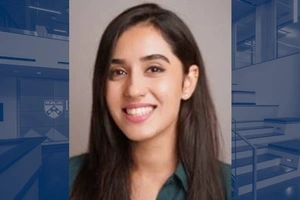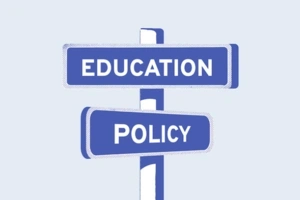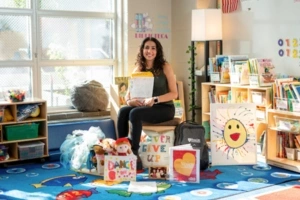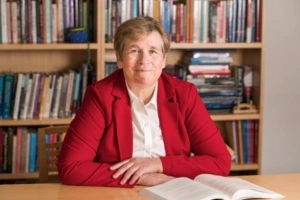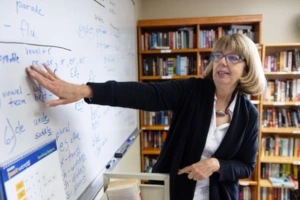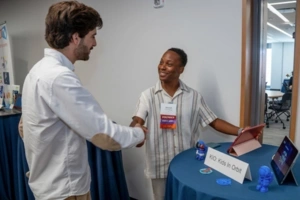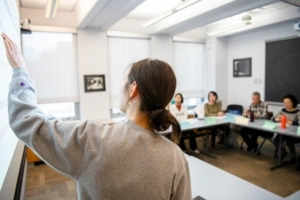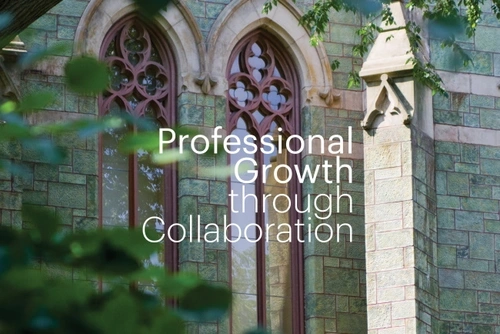
As a professor at Valley Forge Military Academy and College, Sean Chambers helps young people preparing for military life to develop their voices through courses in creative writing and English. When he saw how the challenges of our era—a public health crisis, transitions between learning formats, racial reckoning conversations, and more—were straining his students’ ability to express themselves, he knew he needed new tools for connecting with them.
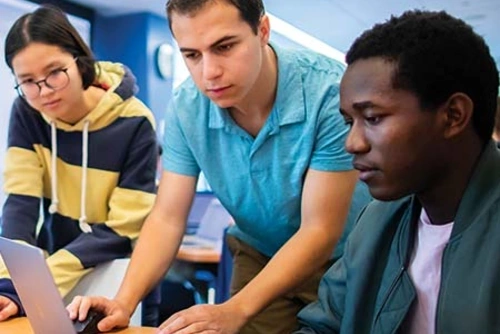
“In the classroom, students seemed at a loss for words specifically around stating how they felt,” says Chambers. That observation brought him to the Virtual Institute in Social-Emotional Teaching and Learning (SEL) offered by the Penn GSE Center for Professional Learning. Through SEL, students can develop healthy ways of managing their emotions and connecting with others. The five-day Virtual Institute, taught by experts based at GSE and Penn, emphasizes the need for educators to engage with students’ identities and perspectives so that systems of oppression are disrupted rather than reinforced.
For Chambers, the program provided a welcome opportunity to learn through collaboration with peers in other disciplines. “I heard how scholars, medical professionals, and secondary level educators and trainers put the SEL ideas into practice,” he says. The program also equipped him to demonstrate leadership at his institution. “I became better at explaining to my peers at my college that we aren’t alone in needing SEL tools or applying them,” he says.
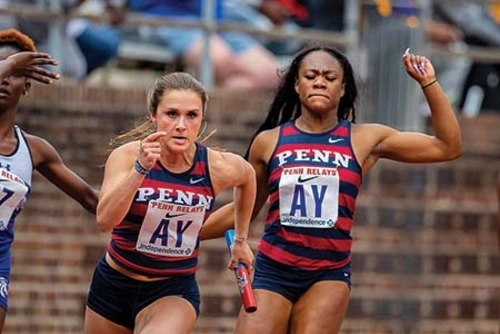
Such professional growth through collaboration is a key aim of the Center’s programming. “We’re conveners,” says Dr. Zachary Herrmann, executive director of the Center. “We bring people together who are working on tough problems, who are innovating in their contexts, so that they learn, collaborate, and grow together.” The Center’s year-round programs range from days to months in length and address a variety of topics. While most of the programs are virtual, the Center builds community among participants through group work and interaction.
Dr. Chris Haug, vice president for student affairs at Neumann University, came to the Collegiate Athletics for Senior Leaders certificate program to gain insight on the role of athletics in higher education. He appreciated the opportunity to learn not only from faculty and special guests, but also from classmates. “The cohort that made up this program came from all institution types and sizes—and from across the country,” he says. “The diversity of our class added to the richness of our conversation, particularly when we were able to break out into small groups and tackle case studies.”
Collaboration was also key to Dr. Mary Libby, principal of The Chester A. Arthur School in The School District of Philadelphia. Libby attended the Project-Based Learning (PBL) certificate program alongside three of Chester A. Arthur’s instructional leaders as they prepared to enrich student-centered learning at their school. “The program helped me develop as a leader by providing a regular time and space to collaborate with others who are leading PBL in their learning communities,” Libby says.
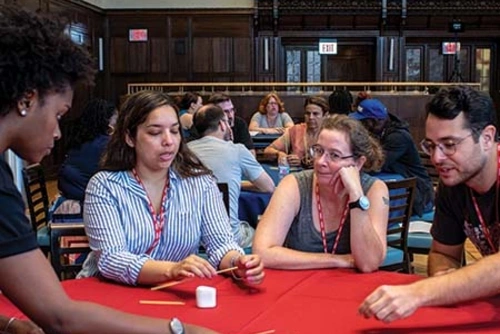
The Center continues to develop new programs in response to emerging needs. A new Leadership for Employee Engagement certificate program will address how managers can respond to the “great resignation” by fostering an inclusive and innovative team culture.
“Having experienced the twin pandemics of COVID-19 and racial injustice, today’s workforce has high expectations,” says Raquel Arredondo, Penn GSE’s assistant dean for diversity, equity, and inclusion, who is a member of the program’s faculty. “Individuals are demanding a work environment in which they are trusted, respected, and feel safe to bring their authentic selves to work.”
Overall, the Center aims to cultivate learning and connections that endure. “We’re building a community,” says Herrmann. “We’re creating networks of educators and leaders who will continue to learn from and support one another.”
Visit www.gse.upenn.edu/professional-learning to learn more about the Center’s certificate programs, institutes, and workshops.
This article appeared in the Spring 2022 issue of The Penn GSE Magazine.
